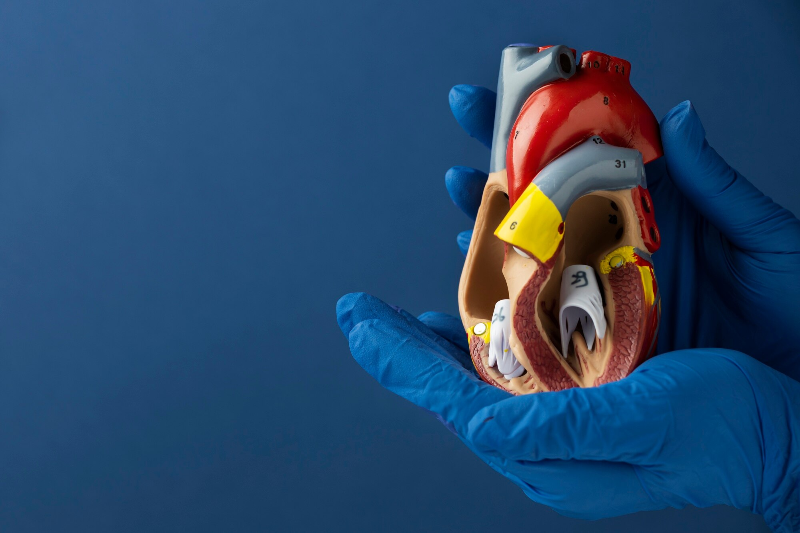by University of Freiburg
Characteristic stripes (green) make the heart muscle cell (cardiomyocyte) easily recognizable. The virus infection in this cell is shown by viral RNA which has been colored red. Image: Freiburg University Medical Centre. Credit: Hanna Wolf, AG Lindner, Department of Cardiology and Angiology
Inflammation of the heart muscle, also known as myocarditis, is a serious consequence of a viral infection. This can impede the heart's ability to pump blood in the long term. In a recent study, researchers of the Faculty of Medicine of the University of Freiburg have discovered a new approach for treating myocarditis.
The research team used an animal model to show that the immune cell receptor GPR15 plays a crucial role in combating viruses in cardiac tissue. If these receptors are not present, elimination of the virus is slower, which could consequentially weaken the heart. These results were published on 27 December 2023 in Nature Cardiovascular Research.
"Myocarditis progresses very differently in different patients. We have now been able to identify a key player in immune defense which significantly influences the course of viral elimination. If we could successfully target interventions here, we could substantially improve the chances of recovery," says the leader of the study, Associate Professor Dr. Diana Lindner, who is head of the Molecular Cardiology Working Group at the Department of Cardiology and Angiology at the University Heart Center of the Freiburg University Medical Center.
Missing receptor slows immune response
The study was conducted under the auspices of the Collaborative Research Center 1425: "The Heterocellular Nature of Cardiac Lesions" at the University of Freiburg. It demonstrates that the immune receptor GPR15 plays a key role in recruiting immune, or regulatory T cells in inflamed cardiac tissue.
In the model, mice deficient in GPR15 showed a delayed response in eliminating the viruses, which in turn led to negative changes in the heart muscle and impaired cardiac function. Slowed and subsequently longer inflammatory reactions were measurable.
Treatment of myocarditis varies according to its severity. Most often it includes drugs that stabilize the workings of the heart and limit inflammation. Patients are told to avoid physical exertion and take it easy to avoid long-term damage. Depending on the individual dynamics of the disease, approaches to therapy range from immunomodulation to supportive measures to maintain heart function.
More information: Bastian Stoffers et al, GPR15-mediated T cell recruitment during acute viral myocarditis facilitated virus elimination and improved outcome, Nature Cardiovascular Research (2023). DOI: 10.1038/s44161-023-00401-z
Journal information: Nature Cardiovascular Research
Provided by University of Freiburg







Post comments